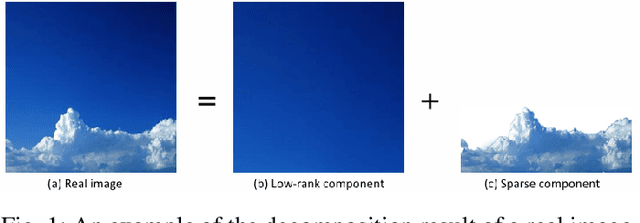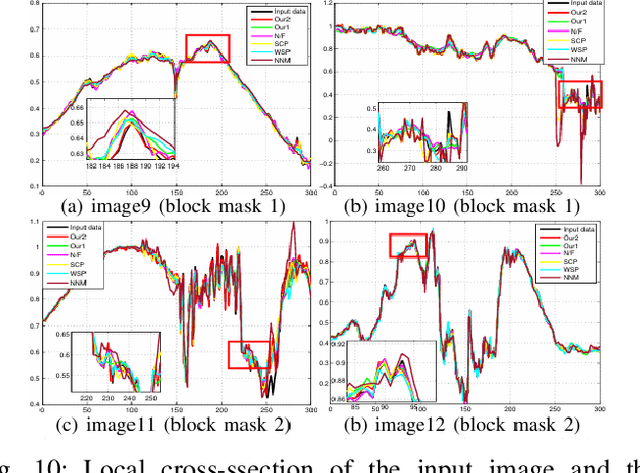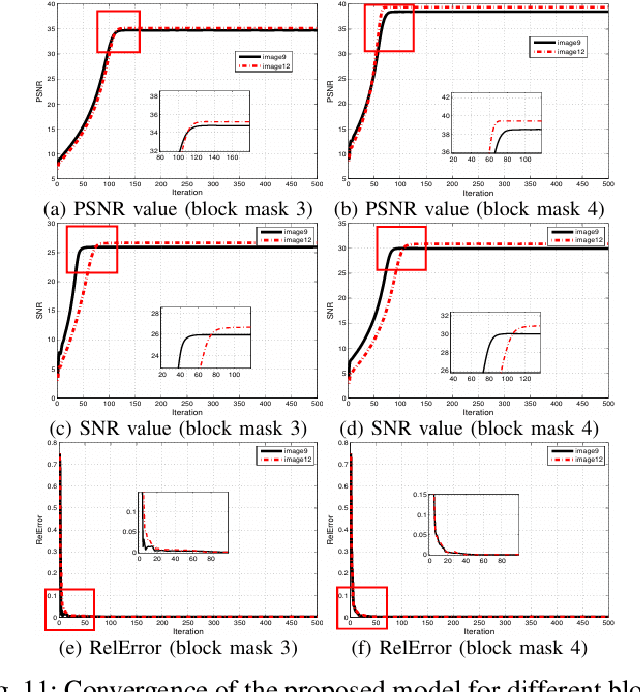Generalized Low-Rank Matrix Completion Model with Overlapping Group Error Representation
Paper and Code
Jul 11, 2024



The low-rank matrix completion (LRMC) technology has achieved remarkable results in low-level visual tasks. There is an underlying assumption that the real-world matrix data is low-rank in LRMC. However, the real matrix data does not satisfy the strict low-rank property, which undoubtedly present serious challenges for the above-mentioned matrix recovery methods. Fortunately, there are feasible schemes that devise appropriate and effective priori representations for describing the intrinsic information of real data. In this paper, we firstly model the matrix data ${\bf{Y}}$ as the sum of a low-rank approximation component $\bf{X}$ and an approximation error component $\cal{E}$. This finer-grained data decomposition architecture enables each component of information to be portrayed more precisely. Further, we design an overlapping group error representation (OGER) function to characterize the above error structure and propose a generalized low-rank matrix completion model based on OGER. Specifically, the low-rank component describes the global structure information of matrix data, while the OGER component not only compensates for the approximation error between the low-rank component and the real data but also better captures the local block sparsity information of matrix data. Finally, we develop an alternating direction method of multipliers (ADMM) that integrates the majorization-minimization (MM) algorithm, which enables the efficient solution of the proposed model. And we analyze the convergence of the algorithm in detail both theoretically and experimentally. In addition, the results of numerical experiments demonstrate that the proposed model outperforms existing competing models in performance.
 Add to Chrome
Add to Chrome Add to Firefox
Add to Firefox Add to Edge
Add to Edge